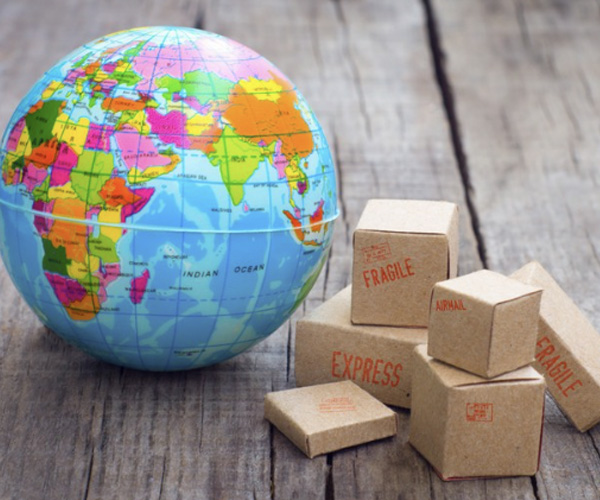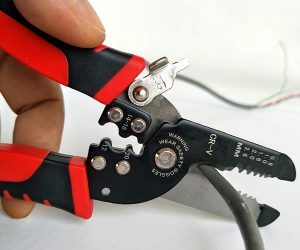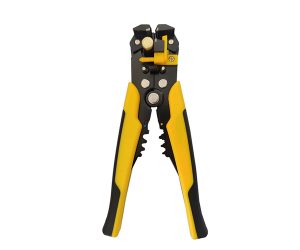Introduction
In today’s globalized world, the impact socket industry is increasingly intertwined with international trade policies. For manufacturers and distributors of impact sockets, understanding the complexities of these policies is essential to ensuring smooth operations across borders. These tools, integral to automotive, construction, and machinery repair industries, are highly dependent on the global supply chain. However, the ever-changing nature of trade regulations, tariffs, and market access can pose challenges. The real question is, how can businesses navigate these complexities? In this article, we will explore the impact of international trade policies on the impact socket industry, offering insights into strategies for success.
1. Understanding Trade Policies: A Key Factor in the Impact Socket Industry
What are trade policies and why do they matter?
Trade policies are the rules and regulations that govern how goods and services are traded between countries. They are designed to regulate tariffs, quotas, import/export restrictions, and standards for products. These policies are created by governments to protect domestic industries, regulate the flow of goods, and ensure that international trade aligns with national interests. For the impact socket industry, these policies are especially important as they determine the cost and ease with which these tools can be traded internationally.
How do trade policies affect the flow of goods in the impact socket market?
Trade policies directly influence the manufacturing, pricing, and distribution of impact sockets. High tariffs can increase the cost of raw materials or finished products, affecting manufacturers’ margins. On the other hand, trade agreements can create opportunities for businesses by lowering tariffs and fostering smoother exchanges between nations. Here’s the deal: understanding trade regulations can be the difference between success and failure in the global market. In an industry where timely delivery and cost competitiveness are crucial, trade policies set the tone for how businesses structure their operations and navigate international markets.
2. Global Trade Agreements and Their Impact on the Industry
What are global trade agreements?
Global trade agreements are formal accords between countries or groups of countries that establish the terms and conditions for trade between them. These agreements may reduce tariffs, eliminate trade barriers, and open up new markets for goods and services. Prominent examples include the World Trade Organization (WTO) agreements, bilateral trade deals, and regional partnerships like the European Union (EU) and the United States-Mexico-Canada Agreement (USMCA).
How do these agreements affect the import and export of impact sockets?
Trade agreements provide a framework that facilitates the international exchange of goods. For the impact socket industry, these agreements often involve commitments to reduce tariffs and ease restrictions on the import and export of tools. For instance, you might be wondering how trade agreements impact your business operations. Under agreements such as the USMCA, manufacturers can benefit from reduced tariffs, making it cheaper to export impact sockets from China to the US or Canada. Trade agreements also offer protection against unfair practices like dumping, which helps ensure a level playing field for all manufacturers.
Key markets: USA, Europe, and Australia
The impact socket industry relies heavily on developed markets, such as the USA, Europe, and Australia, for its products. In these regions, trade agreements have significantly enhanced market access. For instance, factories and distributors in China benefit from the tariff reductions facilitated by agreements like the WTO and regional pacts, which makes exporting more profitable. These agreements create a stable environment where impact socket manufacturers can confidently plan for future sales and distribution strategies, knowing that trade barriers are minimized.
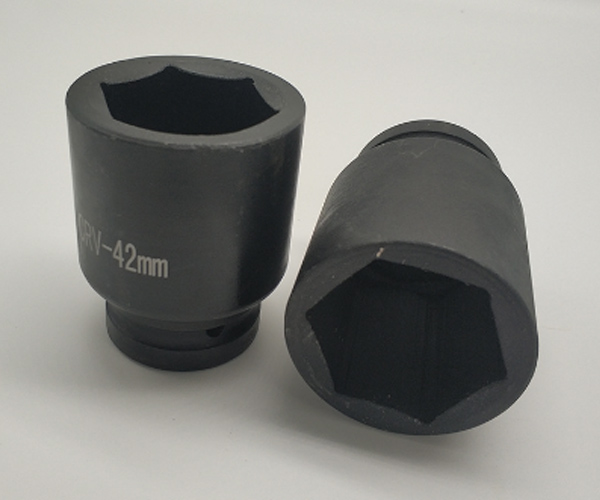
3. Tariffs and Duties: How They Influence the Cost and Availability of Impact Sockets
What are tariffs and duties?
Tariffs are taxes imposed by governments on imported goods, while duties are similar charges that might be applied to specific products or services. The key takeaway here is that tariffs are a critical component of international trade. In the context of impact sockets, tariffs can significantly affect the cost structure for both manufacturers and consumers. High tariffs on raw materials or finished products can drive up costs, making products less affordable for end-users and reducing the competitiveness of businesses in the global market.
How do tariffs impact manufacturers and consumers in the socket industry?
For manufacturers, high tariffs on imported raw materials or components can increase production costs. For instance, if steel, a key material in manufacturing impact sockets, is subject to high tariffs, the cost of production rises, affecting the price of the final product. On the consumer side, these increased costs often translate into higher prices for impact sockets, which can reduce demand and hurt sales. Here’s the deal: managing tariffs effectively is critical for staying competitive in the global market. Manufacturers need to explore ways to mitigate tariff impacts, such as by sourcing materials locally or adjusting pricing strategies.
Current tariff trends affecting the industry
Recent trends indicate that tariffs on industrial products, including hand tools like impact sockets, have been on the rise, especially between the US and China. If you’re selling or manufacturing impact sockets, this can directly affect your bottom line. For example, under the US-China trade war, tariffs on tools and hardware increased, causing disruptions in the pricing structure. Manufacturers had to adjust by shifting production to countries with more favorable trade terms or absorbing the increased costs themselves. Monitoring these trends and adjusting strategies accordingly is essential for survival in a highly competitive industry.
4. Non-Tariff Barriers: Beyond Tariffs
What are non-tariff barriers and how do they impact the impact socket industry?
Non-tariff barriers (NTBs) refer to trade restrictions other than tariffs that can impact the flow of goods between countries. These include product standards, certification requirements, licensing, quotas, and customs procedures. NTBs are often used to protect domestic industries or ensure that imported products meet specific quality and safety standards. The big question here is: how do these barriers impact your trade strategy? In the impact socket industry, NTBs may include compliance with specific safety standards, environmental regulations, or local manufacturing requirements that complicate the import process.
How do these barriers affect market entry and product pricing?
Non-tariff barriers can create significant challenges for manufacturers and distributors. For instance, an impact socket manufacturer might face the requirement to meet specific environmental certifications to sell in the European Union. These regulations often increase production costs, delay time to market, and limit access to certain markets. So, here’s the deal: NTBs can be just as limiting as tariffs, if not more so. The key to navigating these barriers is understanding and adapting to the specific requirements of each market. Manufacturers who can do this efficiently will enjoy a competitive advantage in securing access to lucrative international markets.
Examples of non-tariff barriers affecting impact sockets
One example of a non-tariff barrier affecting the impact socket industry is the European Union’s strict safety regulations for hand tools. These regulations demand that impact sockets pass rigorous testing and certifications before being sold on the market. Similarly, in the US, tools must meet the standards set by the Occupational Safety and Health Administration (OSHA). You might be wondering how these standards impact your business operations. Manufacturers who fail to meet these requirements face significant delays in the approval process or even outright bans from entering certain markets.
5. Regulatory Standards and Compliance in International Trade
What regulatory standards are relevant to the impact socket industry?
Regulatory standards for impact sockets are essential to ensure product quality, safety, and reliability. Key international standards include ISO (International Organization for Standardization) certifications, ASTM (American Society for Testing and Materials) standards, and CE (Conformité Européenne) marks for products sold in Europe. These certifications confirm that products meet the necessary safety and performance criteria required by regulatory authorities. You might be wondering, why is compliance so crucial? Adhering to these standards ensures that impact sockets perform as expected, reducing the risk of damage and injury in their applications.
How do compliance and quality assurance regulations affect manufacturers and suppliers?
Compliance with international standards is essential not only for market access but also for building trust with customers. Manufacturers who produce impact sockets that meet these standards can differentiate themselves in the marketplace by promoting their products as high-quality, reliable, and safe. On the other hand, failing to comply with regulatory standards can lead to costly recalls, fines, and loss of consumer trust. Here’s the deal: regulatory compliance is not optional. It is a critical component of doing business internationally, and manufacturers must invest in ensuring that their products meet the relevant standards.
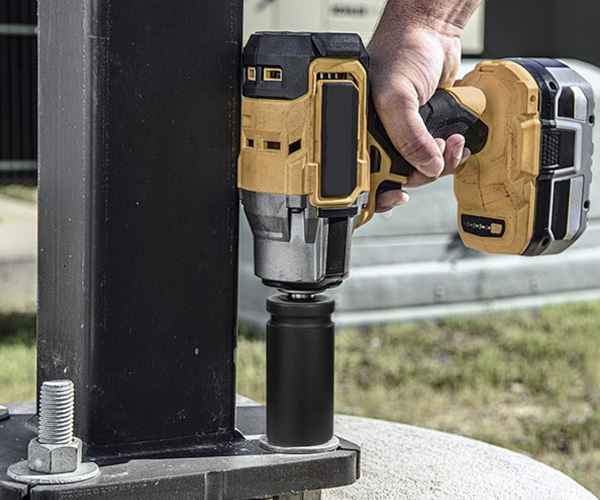
The role of certification and testing in global trade
Certifications and testing play a pivotal role in facilitating international trade. For instance, impact socket manufacturers seeking to export to the European Union must obtain the CE mark to prove that their products meet EU safety standards. Similarly, the ISO 9001 certification for quality management systems assures buyers that the manufacturer has a consistent process for producing high-quality products. You might be wondering, how can certifications impact your global business? These certifications provide reassurance to both suppliers and consumers, helping manufacturers expand their reach into new markets and enhance their brand’s credibility.
6. Import and Export Documentation: Navigating the Paperwork
What documentation is required for international trade in impact sockets?
Import and export documentation is crucial for ensuring that goods can legally cross borders without delays. Essential documents include the commercial invoice, packing list, certificate of origin, export declaration, and bill of lading. Here’s the deal: each of these documents serves a critical role in smoothing the process. Missing or inaccurate documentation can cause significant delays in shipments, additional costs, and even fines. The proper documentation ensures compliance with both exporting and importing country regulations, avoiding issues with customs authorities.
Common challenges faced by manufacturers when preparing these documents
Manufacturers often face challenges in preparing the necessary documentation due to differences in requirements between countries. For example, you might be wondering how to deal with confusing customs forms or complex rules around certificates of origin. Some countries require specific wording or additional certifications that can vary from region to region. Missing or incomplete documents can lead to shipments being held at customs or even denied entry, causing costly delays and potentially damaging business relationships.
Best practices for ensuring smooth trade operations
To avoid issues with import/export documentation, manufacturers should work closely with customs brokers or freight forwarders who understand the specific regulations for the countries involved. Additionally, adopting a digital documentation management system can streamline the process by ensuring all required documents are easily accessible and up-to-date. So, here’s the deal: staying organized and informed is the key to avoiding documentation-related delays. Clear communication with partners and a proactive approach to compliance are essential for smooth international trade.
7. Trade Wars and Political Instability: Risks for the Impact Socket Industry
What is a trade war and how does it affect the global supply chain?
A trade war occurs when two or more countries impose tariffs or other trade barriers on each other in retaliation for perceived unfair trade practices. The big question here is, how does a trade war impact your business? Trade wars can disrupt global supply chains, as tariffs increase costs for manufacturers and disrupt the free flow of goods between countries. For the impact socket industry, these disruptions can affect the availability of materials, delay shipments, and increase production costs, which ultimately impacts consumers.
How does political instability impact manufacturers and distributors of impact sockets?
Political instability can have a significant impact on international trade, as it can lead to changes in trade policies, supply chain disruptions, or even outright trade embargoes. In regions where political instability is high, manufacturers may find it difficult to operate or export goods due to sudden changes in government policies or security concerns. Here’s the deal: navigating political instability requires a flexible business strategy and the ability to adapt quickly to unforeseen changes.
How can manufacturers mitigate risks from geopolitical instability?
To mitigate risks from political instability, manufacturers should diversify their supply chains and markets. By sourcing materials and components from multiple countries, manufacturers reduce their reliance on a single market. You might be wondering how diversification can help. For example, if political instability in one country leads to disruptions, manufacturers can shift their production to other countries with more stable political climates. Additionally, geopolitical risk insurance can protect against losses resulting from unexpected changes in trade policies or market access.
8. The Role of Customs and Border Protection in the Impact Socket Supply Chain
What is the role of customs in regulating impact socket imports and exports?
Customs authorities play a crucial role in regulating the import and export of goods across borders. They are responsible for enforcing trade laws, ensuring that products comply with safety and quality standards, and collecting tariffs and taxes. The key takeaway here is that customs regulations affect every aspect of international trade. For the impact socket industry, customs authorities verify that the correct tariffs are paid and that products meet the required standards before they can enter the market.
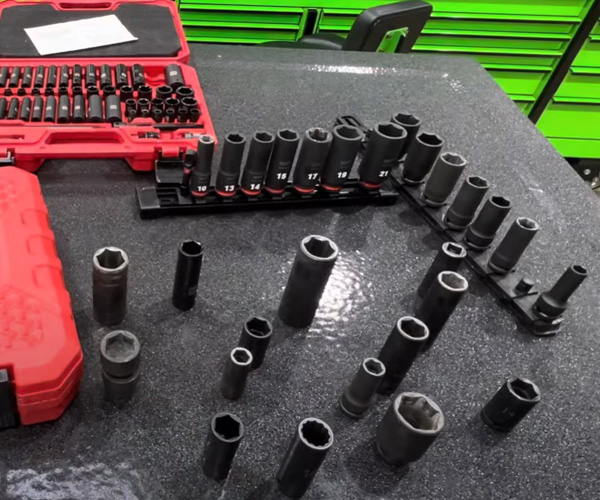
How can customs regulations vary by country?
Customs regulations can vary significantly between countries, requiring manufacturers to comply with different sets of rules depending on where they are trading. You might be wondering how customs regulations differ. For example, in the European Union, customs regulations may require specific documentation for impact sockets, such as CE certification, while the US might focus more on product testing and safety standards under OSHA. Understanding the specific customs rules of each market is essential for ensuring smooth trade operations and avoiding delays.
How can businesses ensure compliance and avoid costly delays?
To ensure compliance, businesses should stay up to date with the latest customs regulations in each market they operate in. Here’s the deal: the more prepared you are, the smoother the process will be. Working with experienced customs brokers can help navigate complex regulations and ensure that all required documentation is properly submitted. Businesses should also invest in training their staff on customs procedures and provide them with the tools needed to stay informed about regulatory changes.
9. The Impact of Trade Policies on Manufacturing Costs
How do international trade policies directly affect the cost of manufacturing impact sockets?
International trade policies have a direct impact on manufacturing costs by influencing the cost of raw materials, production processes, and transportation. For example, tariffs on steel or other components used in manufacturing impact sockets can drive up production costs. The bottom line here is that trade policies can make or break a manufacturer’s ability to stay competitive in the market. Manufacturers need to closely monitor changes in trade regulations to mitigate cost increases and maintain profitability.
Is it more cost-effective to manufacture domestically or internationally?
For many impact socket manufacturers, the decision to manufacture domestically or abroad depends on the trade policies in place. In some cases, manufacturing in a low-cost country like China may offer cost advantages, even when factoring in shipping and tariffs. However, you might be wondering, how do trade policies affect this decision? Trade policies like tariffs and import duties can change the cost-benefit analysis. Manufacturers may find that domestic production is more cost-effective if tariffs on imported goods are high or if local manufacturing incentives exist.
How do supply chain disruptions affect cost structures?
Trade policies can also affect supply chain reliability, which in turn impacts manufacturing costs. Disruptions in the global supply chain, caused by trade wars, tariffs, or natural disasters, can lead to delays in raw material shipments, which raises prices. Here’s the deal: even small delays can ripple through the supply chain and increase costs, forcing manufacturers to adjust their pricing.
10. Supply Chain Challenges: Dealing with Delays and Shortages
What are the common supply chain challenges in the impact socket industry?
In the impact socket industry, common supply chain challenges include delays in the delivery of raw materials, shortages of key components, and transportation issues. These challenges are often exacerbated by fluctuating tariffs and trade policies. You might be wondering, how do these challenges affect manufacturers and consumers? Delays can lead to backlogs, reduced inventory levels, and the need for price hikes, all of which negatively impact both businesses and consumers.
How do trade policies exacerbate these challenges?
Trade policies can exacerbate supply chain challenges by imposing new tariffs, restricting the movement of goods, or creating uncertainties in market access. The big question here is: how can trade policies make these problems worse? For example, changes in tariffs on steel imports can lead to shortages in raw materials for manufacturing impact sockets, forcing manufacturers to find alternative suppliers, often at a higher cost. Additionally, new customs procedures or stricter regulatory requirements can delay shipments, further straining supply chains.
How can manufacturers plan for supply chain disruptions?
Manufacturers can mitigate the impact of supply chain disruptions by diversifying their supplier base and using advanced logistics planning tools. So, here’s the deal: having a flexible supply chain that can adapt to changes in trade policies is crucial for minimizing disruptions and maintaining operations. By proactively managing risks, manufacturers can better weather the storms of shifting global trade dynamics.
11. The Future of International Trade in the Impact Socket Industry
What trends are shaping the future of international trade for the socket industry?
The future of international trade in the impact socket industry will be shaped by ongoing shifts in global trade agreements, technological advancements, and changing consumer demands. For example, e-commerce is playing an increasingly significant role in facilitating international trade. You might be wondering, how will this affect your business? As digital platforms become more prominent, manufacturers will need to embrace online sales channels to reach global customers and expand their market presence.
How will new technologies impact trade policies and international market access?
New technologies, such as automation, artificial intelligence, and blockchain, will impact trade policies by improving efficiency, transparency, and the security of international transactions. Here’s the deal: technology will make it easier to navigate trade policies. For example, blockchain could streamline the customs clearance process by providing immutable records of transactions, while automation in manufacturing will help reduce costs and improve supply chain flexibility.
What changes are expected in trade agreements, tariffs, and regulations?
Trade agreements are expected to evolve to accommodate new industries and challenges in the global economy. For example, the US-China trade war may result in new trade agreements that affect how impact socket manufacturers interact with global markets. You might be wondering how these changes will affect your business operations. Staying informed and adaptable will be key to maintaining a competitive edge as trade policies continue to shift.
12. Managing Relationships with International Partners
How do trade policies influence relationships with international suppliers and distributors?
Trade policies can influence relationships with international partners by impacting the cost, speed, and ease of doing business. The big question here is: how do these changes affect business relationships? Suppliers and distributors may be more or less willing to engage with manufacturers depending on how trade policies affect their costs and operations.
What strategies can impact socket manufacturers use to strengthen partnerships?
Maintaining strong relationships with international partners requires clear communication and mutual understanding of trade regulations and their implications. Here’s the deal: building trust and maintaining transparency will go a long way in strengthening your international business relationships.
Navigating disputes with international partners
Disputes can arise due to disagreements over tariffs, trade barriers, or delivery issues. Manufacturers should focus on open communication to resolve conflicts and protect their relationships with partners.
13. How Impact Socket Manufacturers Can Adapt to Changing Trade Policies
What steps can manufacturers take to stay compliant and competitive?
Manufacturers can stay compliant by regularly reviewing trade policies and adjusting their operations accordingly. The key takeaway here is: adapting to policy changes is crucial for maintaining market access.
How can impact socket manufacturers leverage technology to adapt to trade policies?
Leveraging technology such as trade compliance software or automated systems will help manufacturers stay on top of regulatory changes and improve operational efficiency. You might be wondering, how can tech improve your operations? Embracing digital solutions for trade management is essential for staying competitive in a rapidly changing global market.
Are there any specific tools or resources manufacturers can use to navigate policies?
Manufacturers can use resources such as trade compliance services, industry reports, and government trade resources to stay informed about changes in trade policies and regulations. So, here’s the deal: the more informed you are, the better equipped you’ll be to navigate changing policies.
14. Case Studies: How Companies Are Navigating Trade Policies Successfully
Examples of companies successfully adapting to trade policies
Many companies in the impact socket industry have successfully adapted to trade policies by staying informed, diversifying suppliers, and using technology to streamline operations. You might be wondering, what can we learn from their success? Case studies from companies that have thrived under changing policies provide valuable insights into successful strategies.
Lessons learned from businesses facing challenges in international trade
Some businesses have faced significant challenges, such as supply chain disruptions and regulatory hurdles. The key takeaway here is: learning from others’ experiences can help you avoid common pitfalls and improve your own strategies.
15. Conclusion: Thriving in the Global Impact Socket Market
The impact socket industry faces numerous challenges due to international trade policies, tariffs, and regulations. The big takeaway is: staying informed, adaptable, and compliant is crucial for long-term success.
How companies can thrive in an evolving global trade environment
By embracing new technologies, diversifying supply chains, and staying proactive, manufacturers can position themselves for success. Here’s the deal: adaptability is key in today’s fast-changing global market.
FAQ
What are the most important trade policies for manufacturers of impact sockets?
The most important trade policies include tariffs, import/export regulations, and safety standards that affect product certification.
How can I avoid delays at customs when importing impact sockets?
Ensure that all necessary documentation is accurate and complete, and consider working with a customs broker.
What are non-tariff barriers and how do they affect the socket industry?
Non-tariff barriers include safety certifications and licensing requirements that can delay the import process or increase costs.
How do trade wars affect the availability of impact sockets?
Trade wars can increase tariffs, disrupt supply chains, and create uncertainty in pricing and availability.
What are some tips for adapting to changes in international trade policies?
Stay informed about policy changes, diversify your suppliers, and implement technology to manage compliance.
How can manufacturers reduce the cost of impact socket production in light of tariffs?
Consider sourcing raw materials locally, optimizing production processes, and exploring cost-effective trade agreements.

